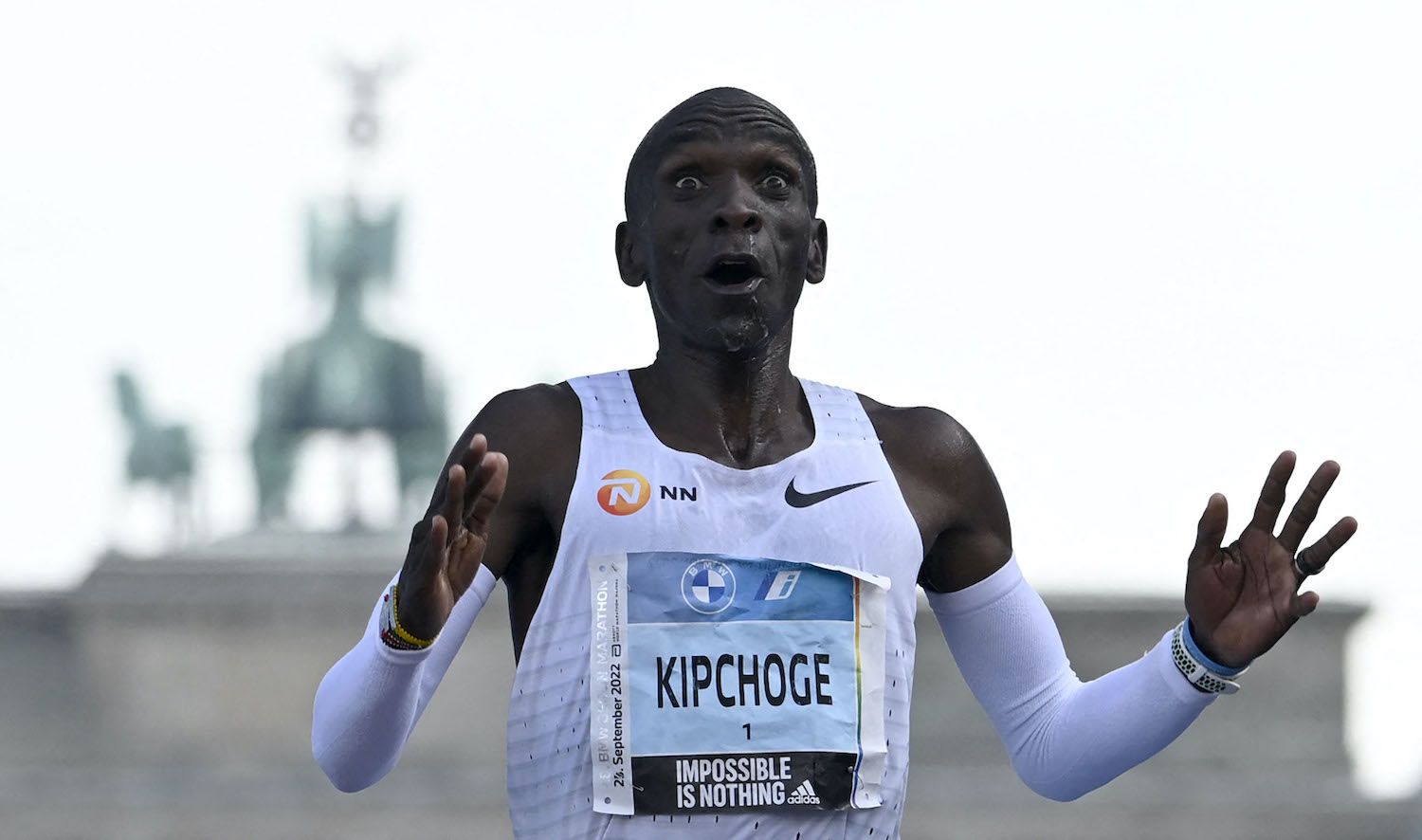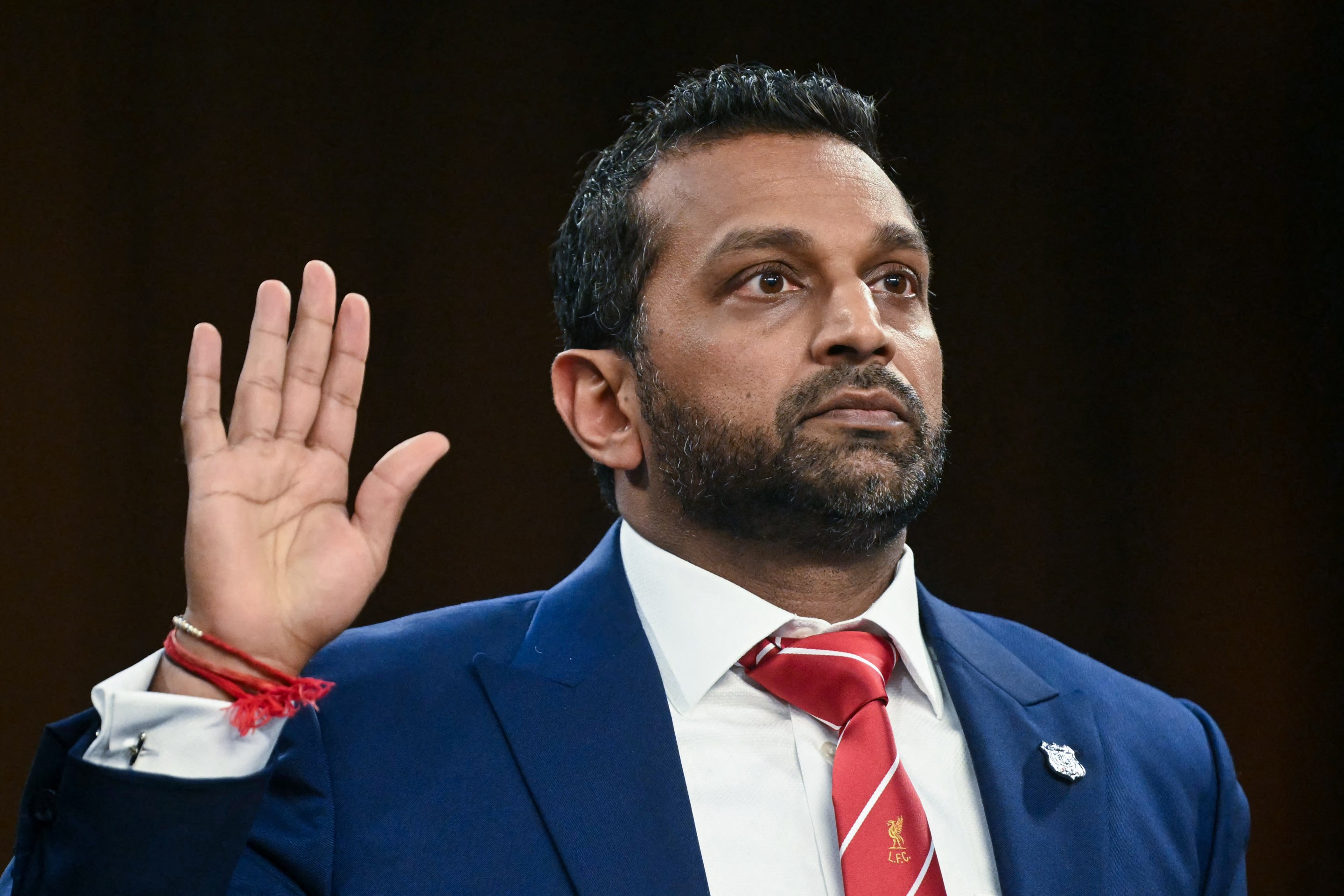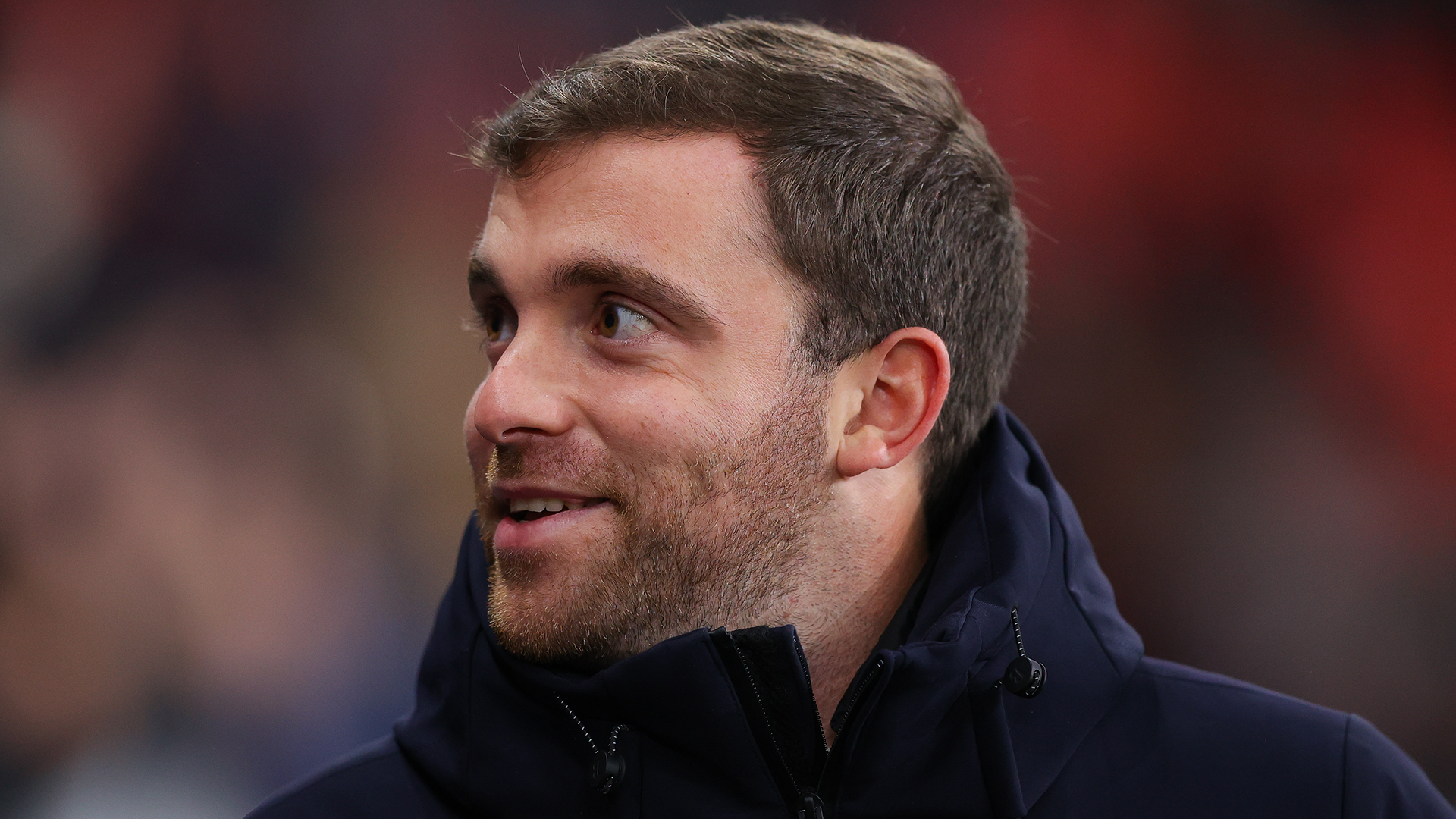This past weekend, 37-year-old Kenyan distance runner Eliud Kipchoge ran 26.2 consecutive miles at a 4:37 pace to win the Berlin Marathon and crush his own world record by 30 whole seconds. The new world record is 2:01:09. Every single one of those numbers is outrageous; elite distance runners age up into longer races—think Alan Webb and Kenenisa Bekele pivoting from the mile and 5K all the way up to the marathon—yet Kipchoge breaking the record six weeks before his 38th birthday made him the oldest runner to break the marathon world record since Carlos Lopes did it in 1985; only six runners have run within two minutes of Kipchoge's new record, and only one has come within 90 seconds.
Kipchoge is, by every metric, the best marathoner in the world and is clearly improving, but because his new world record mark is only 69 seconds north of a clean two hours, the question of What is next? is acutely relevant: Can Kipchoge become the first runner to set the world record below two hours?
The thing is, he already has run a marathon in less than two hours. When Kipchoge ripped off his 1:59:40 in Vienna in 2018, he did so in the best possible conditions. His uber-wealthy British benefactor Jim Ratcliffe helped ensure everything would be just right for Kipchoge and his crew: the team opted for Vienna instead of London because the weather was more predictable, and they could run on a long, straight street next to the Danube for more than 90 percent of the marathon, with the most efficient path around the corners marked out in orange; they consulted elite cycling trainers to determine the best formation for Kipchoge's pacers to insulate him within (a reverse flying V); those pacesetters included several former Olympic medalists like Matt Centrowitz and Bernard Lagat. There was also a car projecting a green laser back in front of the runners to keep them exactly on pace; Kipchoge wore the always-controversial Nike Vaporfly running shoes; and he altered his feeding strategy to take on water and food at the ideal times.
It was a collective effort in service of an individual goal, though I don't think that diminishes the achievement. Roger Bannister used pacesetters when he first broke four minutes in the mile. For a record to be official, it must be set in a race, against other competitors who will not be cycling in and out of the race to set a crisp 4:33 pace and blocking the wind for you. Also, there is the bare fact that nobody besides Kipchoge has been able to break two hours, despite a few serious attempts in similarly controlled conditions. The argument that the precision of the Ratcliffe project invalidates Kipchoge's barrier-shattering run falls apart, to me, when one considers that nobody else has equaled him, or even come close.
Even in Berlin, where the last eight world records have been set on the topographically forgiving course, Kipchoge wasn't really alone. He had the help of early pacemakers, who sent him through the first half in a stunning 59:51, and he also had Claus Henning-Schulke. The former marathoner and triathlete is Kipchoge's personal bottle guy, and the pair trained with a vase to get good at the handoffs that so delight Henning-Schulke.
The point here is that no marathon takes place in a vacuum, and while the hermetically sealed conditions in Vienna are meaningfully distinct from the race-day atmosphere of Berlin, a person running an essentially arbitrary distance within that hard temporal bound is still going to be impressive to me, no matter what. I hope Kipchoge can break two hours in an official race someday, and I hope he can go for the three-peat at the Paris Olympics in 2024. But if he never does lower the official bar below two hours, his achievement in Vienna will be just as real.






